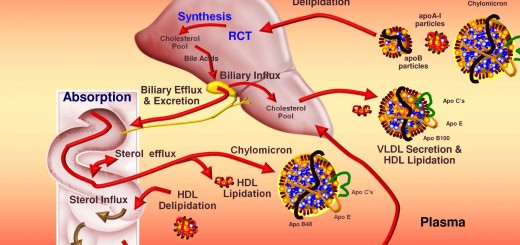 I can’t stand it when the “Everything in Moderation” mantra is pushed as the right solution for everyone.
I can’t stand it when the “Everything in Moderation” mantra is pushed as the right solution for everyone.
There are biological reasons why some individuals can’t consume certain things in moderation, no matter how hard they try.
That’s because many people are literally addictedto the junk foods they are consuming.
Just like with other addictions, the only thingthat works is abstinence.
For addicts, moderation fails… every time.
Many People Don’t Even Know That Food Addiction Exists
In the past few decades, literally hundreds of studies have explored how certain foods can lead to addiction (1).
However, food addiction has yet to make it into the mainstream and many health professionals don’t even know that it exists… yet.
I’ve seen many dietitians and other health professionals literally discouraging people from completely removing the addictive foods from their life.
They say that such “extreme” methods are doomed to fail and will lead to feelings of deprivation.
Even though these people mean well, they fail to understand how hopeless this approach is going to be when applied to food addicts.
Chances are that people who are true food addicts will never succeed if they try to eat “in moderation.”
They will continue to eat large amounts of junk food and suffer all the horrible consequences for the rest of their (much shorter) lives.
There Are Biological Reasons Why Some People Just Can’t Consume Junk Food in Moderation
Food addiction has a biological basis (2).
Humans are hardwired to seek out behaviors that release a neurotransmitter called dopamine in the reward system of the brain.
This is interpreted by the brain as “pleasure.”
Many activities release dopamine… including eating behavior, sexual behavior and all kinds of things that make us feel “good.”
This dopamine-driven reward is NOT a bad thing when it happens under natural circumstances.
The problems appear when do things that release more dopamine than we were ever exposed to when our brains were evolving.
Whereas real foods cause a relatively mild dopamine release, highly engineered junk foods that are loaded with sugar can have a very powerful effect (3).
Interestingly, this is exactly what happens when people take drugs of abuse like cocaine… large amounts of dopamine are released in the reward system of the brain.
For people with a certain predisposition, this can lead to full-blown addiction (4).
When this happens, the “reward seeking behavior” takes over… logic and reason fail and the individual starts succumbing to cravings, despite knowing that it is causing physical harm.
This is the reason smokers can’t just decide to “smoke less” and alcoholics can’t just decide to “drink less.” The logical part of their brain doesn’t have control anymore.
People who binge eat and can’t control themselves around junk food have the exact same problem.
Of course, this is all a drastic oversimplification. Addiction and the brain are incredibly complex subjects and there are many brain centers and neurotransmitters involved.
My Personal Experiences With Addiction
I can support this with some personal experiences…
I am a recovering alcoholic and a drug addict… sober since January 4th, 2007.
I’ve been to 6 rehabs, a mental institution, jail more often than I can count and several trips to the emergency room due to overdose.
I was also a smoker for many years, but managed to give that up after multiple attempts.
The reason I’m telling you this, is to demonstrate that I know how addiction works.
I’ve been there… succeeded, and failed, many times.
A few years ago, I realized that I had been developing an addiction to junk foods.
Full-blown addiction, nothing more, nothing less.
I had completely lost control over my consumption… I used to binge all the time and often ate thousands of calories in a sitting.
I struggled with this for years. I tried literally everything… cheat meals didn’t work, cheat days didn’t work, pills didn’t work, supplements didn’t work and various different diets failed.
“Moderation” sure as hell didn’t work either.
Eventually, I realized that I was experiencing the exact same symptoms as when I was addicted to drugs.
The cravings, the thought processes, the failure to set rules, the complete lack of self control… being addicted to junk food was the same as being addicted to amphetamine.
Exactly the same.
Just like with drugs, the only way I have ever been able to stop eating junk foods is by completely removing them from my life.
Moderation failed, every time.
As soon as I managed to give up the addictive foods completely, I lost weight… with pretty much no effort.
I have since spoken to many of my friends who are also recovering drug addicts. They didn’t struggle with binge eating like I did, but they have confirmed that craving ice cream feels the exact same as craving a drug.
Even though there are no reliable statistics available, I am personally convinced that food addiction is much more common than most people think.
If you have problems with binge eating or have repeatedly failed to set rules about junk foods, then perhaps this is something you should look into.
It might end up saving your life.
The Other Side of The Story – Restrictive Dieting and Eating Disorders
There is a strange dilemma here… there are also studies showing that restrictive dieting can cause binge eating and lead to eating disorders (5, 6).
For this reason, being flexible with your diet may be a good idea for a lot of people.
Some people can and maybe even should include some junk foods in their life, without feeling guilty, in order to reduce the likelihood of developing an “unhealthy relationship” with food.
This approach can work for some people, NOT others.
I personally think that people who have already succumbed to food addiction will not succeed unless they manage to avoid junk foods completely.
For these people, the “everything in moderation” message, which literally discourages them from doing the only thing that works for addiction, is seriously harmful.
This is just one of many examples where there are very few “truths” in nutrition that can be applied across the board.
While including junk food in moderation can work for a lot of people, it is acomplete disaster for others.
What is The Solution?
When it comes to addiction, abstinence is only the beginning. Sticking to it in the long run (preferably for life) is the real challenge.
People who truly have food addiction may need much more than just a firm decision to stop eating the addictive foods.
Fortunately, there are psychologists, treatment programs, self-help groups and 12-step programs (free) that can help with this.
One thing is certain… a person with true addiction will never, ever be able to consume their “drug of choice” in moderation.
Telling a food addict to eat junk food “in moderation” is just as ridiculous as telling a smoker to smoke in moderation, or an alcoholic to drink in moderation.
It simply does not work, period.
Original Article by: Kris Gunnars at AuthorityNutrition





